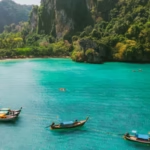Why Choose Spiritual Travel in India?
Spiritual journey in India is a life-changing experience that is more than just a journey—it’s a path to self-discovery and inner peace. In a world increasingly driven by material pursuits, the yearning for inner peace and meaning is stronger than ever. India, with its deeply rooted spiritual heritage, offers a sanctuary for those seeking clarity, healing, and transformation. The idea of spiritual travel is not new in India—it is embedded in its culture, scriptures, and traditions. Pilgrimage has always been a vital part of Indian life, but in recent years, the concept has evolved beyond religious duty into personal spiritual exploration.
India is a land of contrasts, and nowhere is this more evident than in its spiritual landscape. From the tranquil banks of the Ganges to the quiet monasteries of the Himalayas, India provides experiences that blend ancient wisdom with modern mindfulness practices. As spiritual tourism continues to grow, more travelers are embarking on journeys not to escape life but to find themselves.
Top Spiritual Destinations in India
Rishikesh – The Yoga Capital of the World
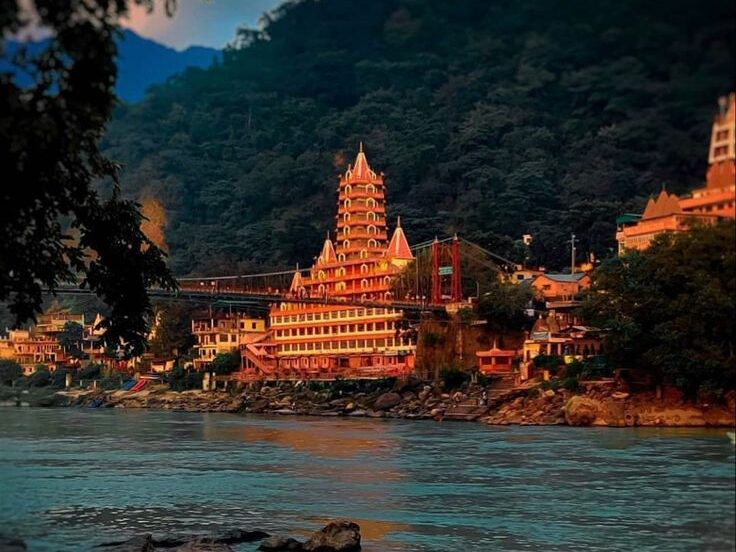
Rishikesh is a serene Himalayan town on the banks of the holy river Ganga. Known globally as the birthplace of yoga, it attracts seekers from all over the world looking to immerse themselves in spiritual practices like meditation, yogic healing, and self-inquiry.
Why visit Rishikesh?
- The town is also known for its spiritual discourses, healing therapies, and wellness retreats.
- Rishikesh is dotted with world-class yoga schools and ashrams offering programs in traditional Hatha, Ashtanga, and Kundalini yoga.
- The Ganga Aarti at Triveni Ghat is a powerful daily ritual that immerses you in ancient Vedic traditions.
Must-visit places:
- Neelkanth Mahadev Temple
- Parmarth Niketan Ashram
- Beatles Ashram (Chaurasi Kutia)
Bodhgaya – The Land of Buddha’s Enlightenment
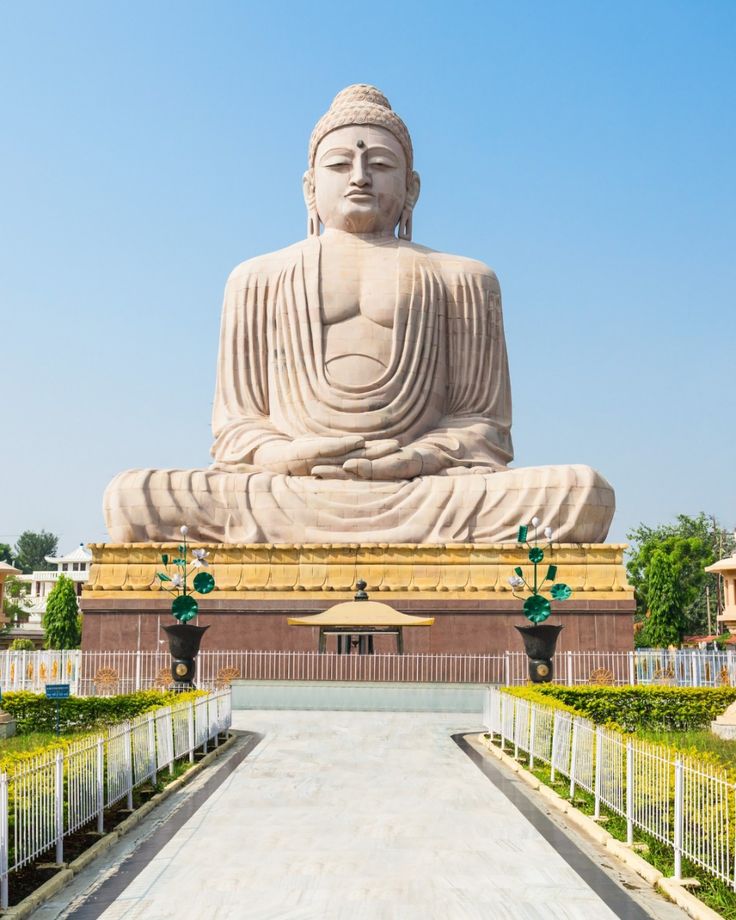
Located in Bihar, Bodhgaya is one of the most sacred Buddhist sites in the world. It is the place where Prince Siddhartha attained enlightenment under the Bodhi Tree and became the Buddha. Today, Bodhgaya is a spiritual hub for Buddhists and peace-seekers alike.
Highlights of Bodhgaya:
- The Mahabodhi Temple, a UNESCO World Heritage Site, is built at the very spot of the Buddha’s enlightenment.
- Monasteries from Japan, Thailand, Bhutan, and Tibet surround the temple, offering a global Buddhist atmosphere.
- Silent retreats and meditation courses are available at places like Root Institute and Tergar Monastery.
Cultural insights:
- The town has a strong energy of silence, simplicity, and compassion.
- Morning chanting and meditation at the Mahabodhi complex are open to visitors.
- Monasteries often offer short stays with basic accommodation and meals.
Varanasi – Where Spirituality Meets the Ganges
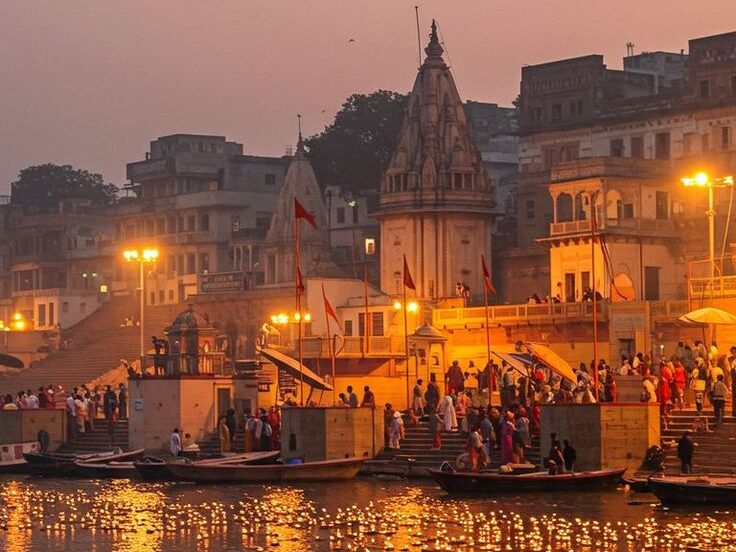
Often called the oldest living city in the world, Varanasi (also known as Kashi or Banaras) is the spiritual soul of India. Situated on the banks of the Ganges, it is believed that dying here ensures liberation (moksha) from the cycle of rebirth.
Why Varanasi is unique:
- The Ganga Aarti at Dashashwamedh Ghat is a mesmerizing display of faith, light, and devotion.
- The city is home to over 2,000 temples, including the famous Kashi Vishwanath Temple dedicated to Lord Shiva.
- Travelers can experience rituals like cremation ceremonies, boat rides at sunrise, and satsangs.
What to expect:
- Avoid flashy attire; wear modest, light cotton clothes and be respectful during rituals.
- Varanasi can be overwhelming with its noise, crowds, and intensity, but it’s also deeply transformative.
- The old city near Assi Ghat is more peaceful and ideal for introspective travelers.
Haridwar – Gateway to the Himalayas

Just 20 kilometers from Rishikesh, Haridwar is another prominent spiritual city in Uttarakhand. It is considered one of the seven holiest places in Hinduism and a key site for the Kumbh Mela, the largest religious gathering on earth.
Spiritual features:
- Mansa Devi and Chandi Devi temples are perched on hills and accessible via cable car.
- Har Ki Pauri is the main ghat where people take ritual baths to purify their karma.
- The Ganga Aarti here is more traditional and family-oriented compared to Rishikesh.
Best experiences:
- Witnessing a large congregation during special festivals like Ganga Dussehra or Kartik Purnima.
- Walking along the ghats during early morning bhajans and chants.
- Staying in ashrams like Bharat Mata Ashram that offer free lodging and meals for seekers.
Tiruvannamalai – Mystic Energy of Shiva
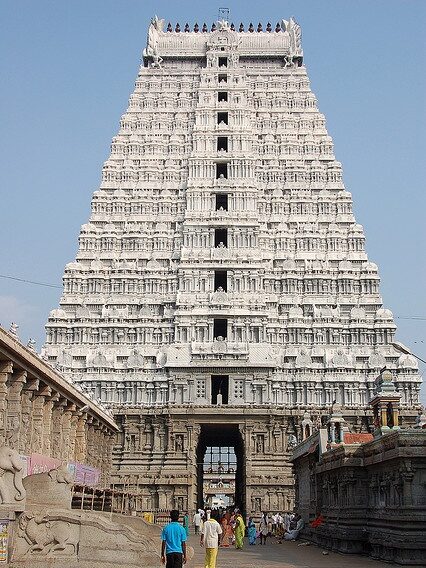
Less commercial and more mystical, Tiruvannamalai in Tamil Nadu is built around the sacred Arunachala Hill, which is believed to be an incarnation of Lord Shiva himself. This town radiates deep spiritual energy and is known for non-dualistic (Advaita) practices.
Spiritual offerings:
- Ramana Maharshi Ashram, where thousands come for silent meditation and teachings.
- Girivalam – a sacred 14-km circumambulation walk around Arunachala Hill done during full moons.
- Daily satsangs, pujas, and yoga sessions conducted in various local centers.
Why visit Tiruvannamalai?
- Unlike many spiritual towns, this one is quiet, simple, and deeply meditative.
- It’s perfect for introspection, long stays, or writer’s retreats.
- Ideal for those looking to deepen their understanding of Advaita philosophy
Amritsar – Spiritual Heart of Sikhism
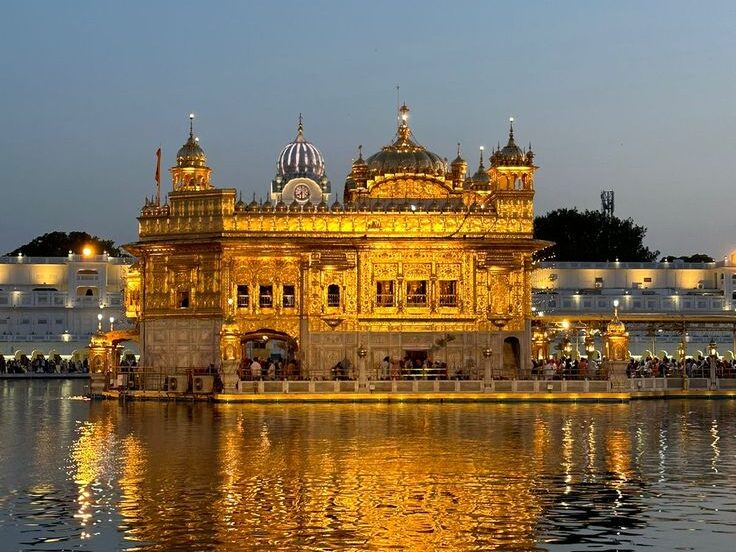
Amritsar in Punjab is home to the stunning Golden Temple (Harmandir Sahib), the spiritual center of Sikhism. It welcomes people from all faiths and backgrounds, offering unconditional service, hospitality, and peace.
Must-do experiences:
- Participate in Langar, a free community kitchen that serves over 50,000 meals a day.
- Attend the morning and evening Shabad Kirtan (devotional singing).
- Visit the Central Sikh Museum and Akal Takht for cultural insights.
Travel tips:
- Cover your head, remove shoes, and remain silent inside the temple.
- Free accommodations are available in the complex for pilgrims.
- Explore nearby sites like the Partition Museum and Jallianwala Bagh for historical depth.
- Planning Your Spiritual Journey
- Planning Your Spiritual Journey
Planning Your Spiritual Journey
What to Pack for a Spiritual Journey in India
Packing for a spiritual journey is not just about what you carry—it’s about how lightly you travel, in body and spirit. Here’s a soulful approach to what you’ll truly need:
🧘♀️ Simple Clothing, Simpler Mind: Pack loose, breathable, and modest outfits—think soft cottons in calming tones. These are not only comfortable in India’s climate but align with the humble ethos of spiritual spaces.
📖 Journal & Pen: Your journey will be rich with insight. Carry a travel journal to note dreams, synchronicities, or reflections after meditations.
💧 Reusable Water Bottle: Stay hydrated while respecting the environment. Many spiritual centers now provide filtered water refills.
🌅 Shawl or Dupatta: Temples, ashrams, and gurudwaras often require head coverings. A lightweight shawl doubles as warmth, modesty, and spiritual decorum.
🕯 Essential Aids: Bring a flashlight for power cuts, a power bank for remote areas, and basic medications. Include a small first-aid pouch and any herbal remedies you trust.
🧘♂️ Optional Spiritual Gear:
- Lightweight yoga mat or meditation shawl
- Rudraksha beads or mala if you’re drawn to mantra practices
🎒 Travel Light, Stay Open: Leave behind heavy expectations and overpacked bags. India will fill you with more than you imagined—leave space to receive it.
Choosing Ashrams vs Hotels vs Retreats
Ashrams offer an immersive experience with strict schedules, communal living, and spiritual focus. Ideal for long-term seekers.
Hotels provide comfort and privacy but lack the spiritual ambiance.
- Ashrams offer an immersive experience with strict schedules, communal living, and spiritual focus. Ideal for long-term seekers.
- Hotels provide comfort and privacy but lack the spiritual ambiance.
- Wellness retreats balance structure and relaxation with guided practices, ideal for beginners.
Budget Breakdown (Example: 3-Day Rishikesh Trip)
| Category | Estimated Cost (INR) | Description |
|---|---|---|
| Travel | ₹1,000 | Budget-friendly train or bus travel (Delhi to Rishikesh and return). |
| Accommodation | ₹1,500 | 3 nights at an ashram or budget hostel (₹500/night, often includes basic meals). |
| Daily Meals | ₹600 | Simple vegetarian meals (₹200/day); many ashrams include food in stay charges. |
| Activities & Donations | ₹500 | Includes yoga sessions, spiritual talks, Ganga Aarti, and small temple offerings. |
| Total Estimated Cost | ₹3,600 |
This breakdown reflects a conscious, humble way to travel—where luxury lies in peace of mind rather than thread count. If you’re open to shared rooms, simple thalis, and mornings filled with mantra rather than alarms, this is more than a trip—it’s an awakening.
✨ Money-Saving Tips:
- Volunteer at an ashram in exchange for lodging and food.
- Travel during weekdays or off-peak seasons to get better accommodation rates.
- Carry your own yoga mat and water bottle to avoid additional expenses.
🧘♀️ Whether you’re a student seeking purpose or a digital nomad unplugging for clarity, this kind of journey proves that transformation doesn’t need luxury—it needs intention.
Do’s and Don’ts on a Spiritual Trip
Dos’s
- Participate respectfully in rituals and prayers
- Ask permission before taking photos, especially during ceremonies
- Carry a small offering (flowers, fruits, or a small donation) when visiting temples
- Keep silence and switch off mobile phones in meditation spaces
Don’ts
- Don’t wear revealing clothes or loud colors
- Avoid eating meat or consuming alcohol in spiritual towns
- Don’t interrupt or debate during religious practices
Bonus: Unique Spiritual Experiences Worth Trying
Vipassana Meditation (10-Day Silent Retreats)
Conducted in Dhamma centers across India, these retreats offer deep self-awareness and insight through silence and mindfulness. It’s tough, but transformative.
Kedarnath Pilgrimage
Accessible only by foot or mule, Kedarnath is one of the holiest Shiva temples in the Himalayas. The spiritual energy here is intense and pure.
Auroville, Pondicherry
This experimental township welcomes global citizens focused on human unity and conscious living. Visit the Matrimandir for silent meditation in a futuristic setting.
Sound Healing and Reiki
Popular in places like Dharamshala and Goa, these energy-based healing practices combine ancient wisdom with modern therapeutic techniques.
FAQs About Spiritual Travel in India
Ques 1 Is spiritual travel in India safe for solo female travelers?
Yes. Places like Rishikesh, Pondicherry, and Amritsar are generally safe. Stick to well-reviewed accommodations, avoid night travel, and dress conservatively.
Ques 2 Do I need to be religious to go on a spiritual journey?
Not at all. Spirituality in India is about inner growth and consciousness. Whether you’re an atheist, agnostic, or believer, you’re welcome.
Ques 3 What’s the difference between a spiritual retreat and a religious pilgrimage?
A pilgrimage is often ritual-based and associated with specific religious faiths. A retreat focuses on personal growth, meditation, and wellness.
Conclusion: India’s Calling – Are You Ready to Answer?
Spiritual journeys are not just about reaching holy sites—they’re about discovering the sacred within. India, with its deep spiritual roots, mystical landscapes, and welcoming traditions, offers a powerful invitation to anyone on a quest for truth, healing, or inner peace.
Whether you’re meditating under the Bodhi tree, chanting on the banks of the Ganges, or silently walking around Arunachala Hill, you’ll find that the path to enlightenment often begins with a single, soulful step.
So take that step. India is ready for you.
Ready to Explore?
Need help planning your custom Spiritual Journery or booking hotels and tours? Contact Touristicape – your travel buddy to the world!
Happy Travels! ✈️🌍






